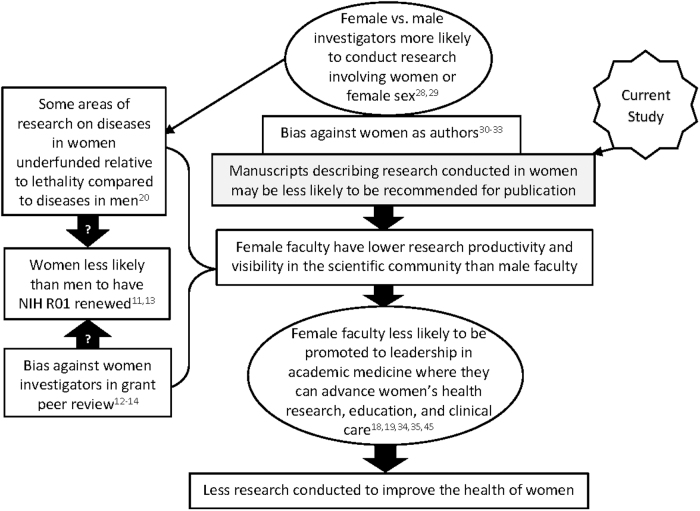FIG. 1.
Conceptual model of contributors to women's lower productivity and academic career advancement compared to their male counterparts that conspire to reduce research on women's health. Although each of these contributors may be small, women investigators are disadvantaged by the multiple ways their lower status synergistically affects their ability to engage in research. Women may be disadvantaged as investigators trying to secure research funding because of their own gender and/or because they may be studying a relatively underfunded women's health issue. Women may be disadvantaged in article peer review due to their own gender and because the research described in their articles was conducted on women. These biases result in fewer publications that may further impede success in garnering increasingly competitive research funding. The combination of fewer publications and less research funding reduce the likelihood that women will be promoted to senior faculty or leadership positions where they could have multiple positive effects on women's health, including advocating for more research funding for women's health issues.

